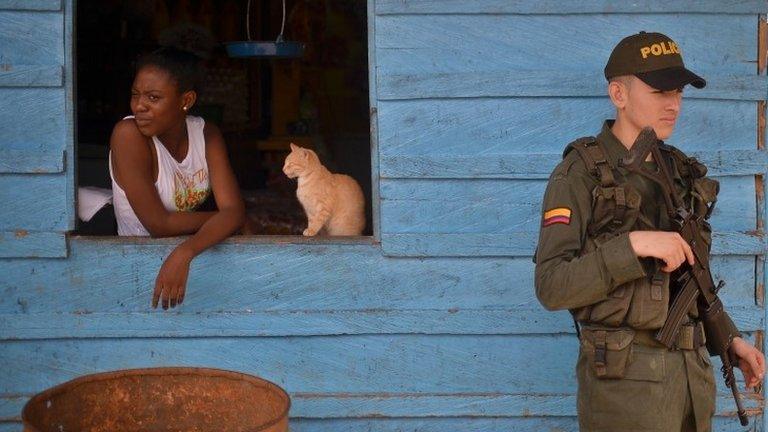Ecuador searches for reporters kidnapped in border area
- Published
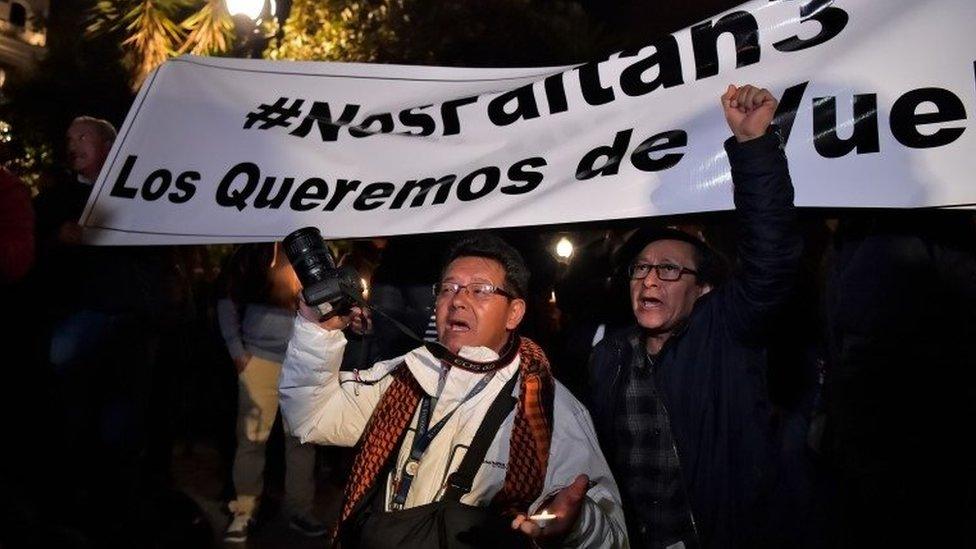
Colleagues of the kidnapped journalist demanded their release
Ecuadorean police are searching for two newspaper journalists and their driver who were kidnapped near the border with Colombia on Monday.
The three were seized in Esmeraldas province, where dissident members of Colombia's Farc rebel group are active.
Hundreds of former rebels who did not agree with the peace deal the guerrilla group signed with the Colombian government have broken away.
Many of them have joined drug trafficking gangs in the border area.

Watch and read more:

The three men, who work for Ecuador's El Comercio newspaper, were taken near the village of Mataje.
Interior Minister César Navas said he had information that the three were well and had been taken to neighbouring Colombia.
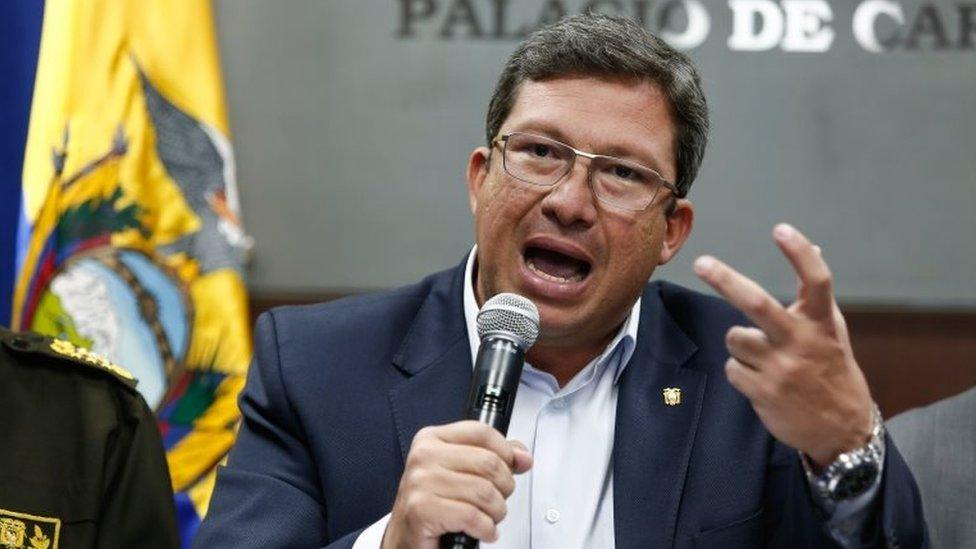
Ecuadorean Interior Minister César Navas said he would not rest until the three are freed
He said contact had been made with their kidnappers but gave no details.
He also said the three had passed a military checkpoint and had been warned about the dangers of entering the area, which has seen a recent spike in violence.
Last week, three soldiers were killed while on patrol in the village when a bomb exploded as they were driving past.
Attacks with homemade explosives and mortars have become more common as security forces have increased their counter-narcotics operations in the area.
Officials blame much of the violence on a man known as Guacho, an Ecuadorean member of the Farc who told Colombian radio station RCN that he had left the rebel group after 10 years due to a "disagreement".
He described himself as "an active guerrilla fighter".
The Farc have now become a political party with the same initials, and members have strongly denounced those who refuse to lay down their arms.
Colombian President Juan Manuel Santos has offered a reward of 150m pesos ($54,000; £38,000) for information leading to Guacho's capture.
- Published28 September 2017
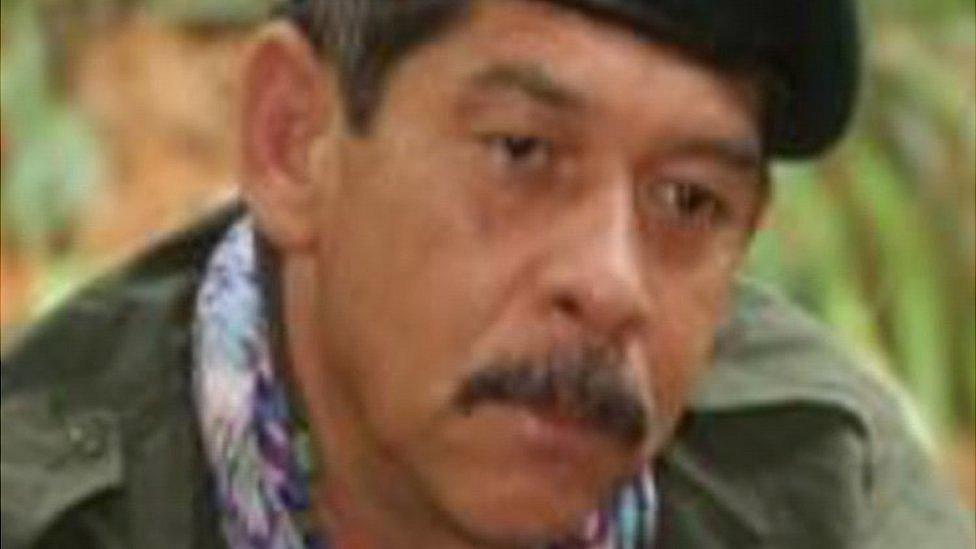
- Published1 September 2017
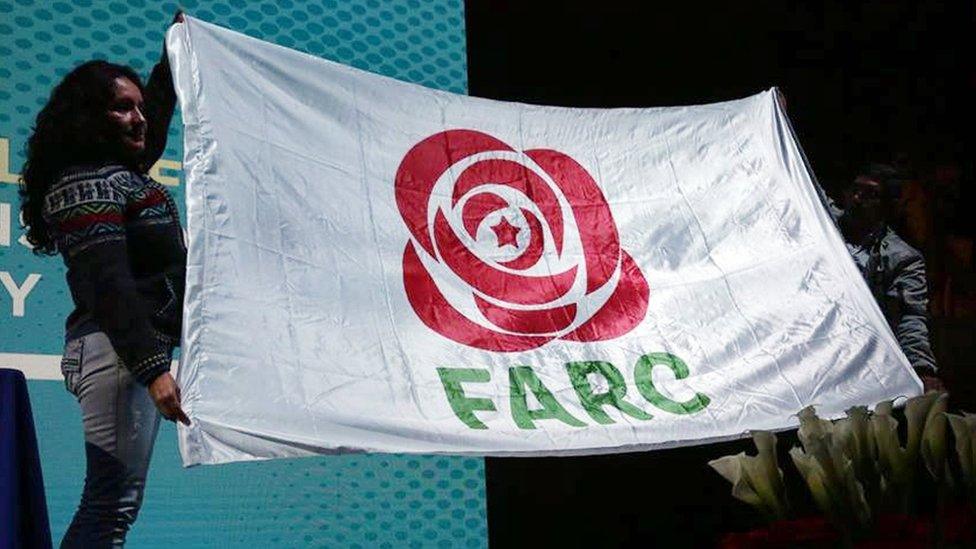
- Published27 June 2017
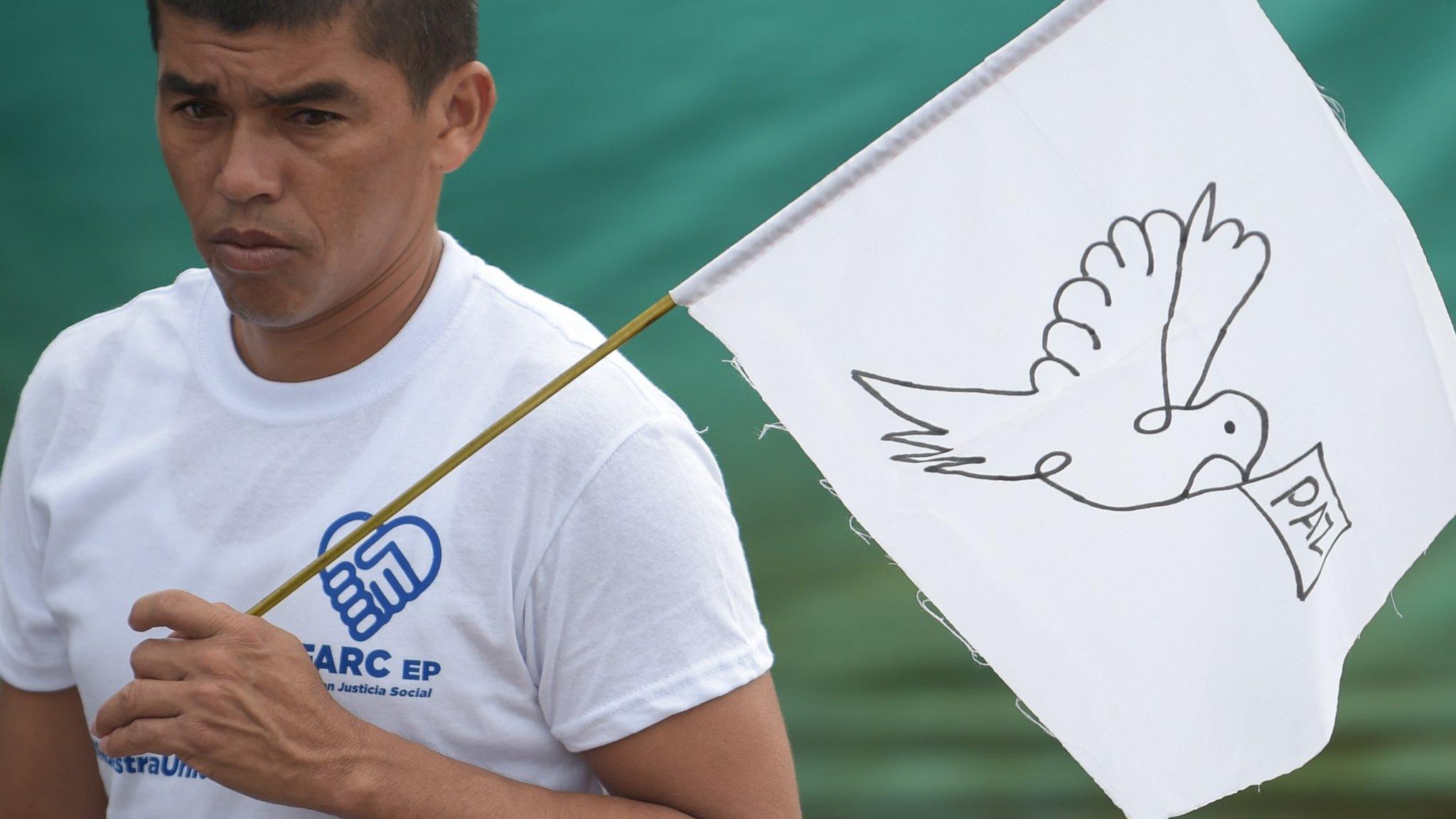
- Published9 March 2017
